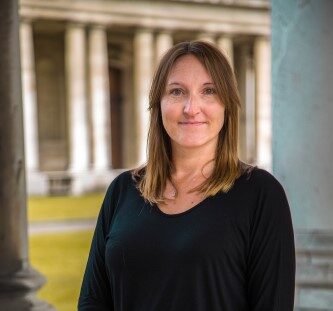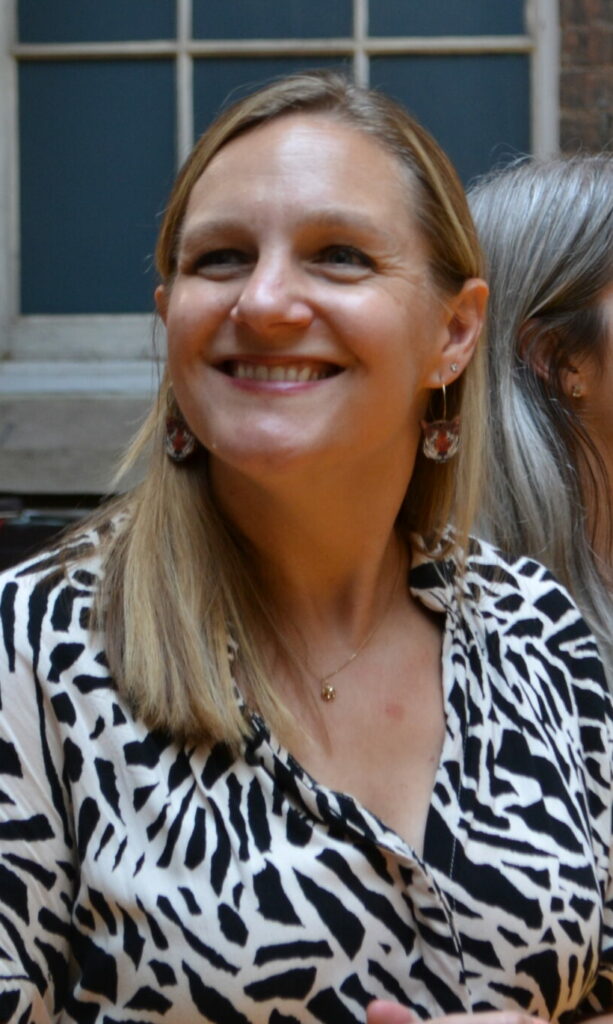Hands-on experience is a defining feature of teaching and learning at Alliance universities. In our latest instalment of the Innovators blog series, University of Greenwich’s Dr. Louise Hewitt writes about how the Innocence Project London provides vital experience and a critical perspective of the criminal justice system for her students.
Deconstructing claims of innocence from convicted individuals is not a routine feature of degree programmes in higher education, but at the University of Greenwich students are embracing the opportunity.
The Innocence Project London (IPL) brings together students from across the Faculty of Liberal Arts and Sciences to help make applications to the Criminal Cases Review Commission (CCRC) on behalf of their clients. The CCRC is the only body that is able to refer a case back to the Court of Appeal.
The IPL’s work is distinct from the traditional law clinic format where students consider a case before it reaches court. Innocence work starts at the end of the criminal justice process, after the trial where the jury find the defendant guilty and after the appeals process, where either leave to appeal is denied or a full appeal is dismissed.
The learning is dependent on the subject matter of each case, where students have to understand which evidence was presented at trial and on appeal, in order to identify what could amount to fresh evidence or a new legal argument to meet the requirements of the CCRC.
The types of evidence that the students are exposed to include but are not limited to: witness statements, CCTV images, forensic evidence, cell site (mobile phone) data and digital evidence such as text messages or social media messages. The paperwork students have to read extends beyond the summing-up of the trial Judge and appeal documents, to custody records, expert reports, medical information and jury bundles.
Students respond to what they find, making the learning process continuous. They gain an insight into the entire criminal justice process, starting with the police investigation right the way through to the trial and the appeal, then extending to the prison system. This exposure helps students develop a critical perspective of the criminal justice system.
The work starts with six weeks of training for new students before they are allocated their case. Some students work on an existing case, others start a completely new case but regardless, the investment in the work is the same.
Students are exposed to each other’s thoughts and emotions whilst working together. They feel able to express how they feel because the clinic environment is a safe space for them. The best learning comes from discussions about the evidence, and developing theories based on their understanding of what happened and why the client is claiming innocence.
The conversations during casework meetings, where both the case and ideas are discussed generates a type of learning based on social relationships, where emotions are recognised as contributing to not only students’ motivation, but also their self-esteem. This discursive learning environment is underpinned by positive relationships between group members and the development of skills associated with self-regulated learning.
The focus of the work is to do the best for their client, which moves the students away from achieving a certain grade. Students often talk about finding a sense of belonging with like-minded people who want to help others. The collective sense of righting a wrong, helps contribute to this and motivates students in their work.
Innocence organisations often investigate cases that have incomplete paperwork which requires time to contact previous lawyers and/or organisations that have supported the individual to see if they have originals or copies of files. Losing case files can be costly, for example replacing a copy of the Judges summing-up requires paying a transcription service, and many clients and applicants do not have the funds to do so.
For IPL students, when they start working on a case, they start to understand how important their client’s case file is. Firstly, in terms of the work they are doing, in understanding the evidence that was used and not used at trial which helps to determine what may be possible to use for an application to the CCRC. Secondly, from their clients perspective, paperwork is a form of currency, it means they can provide relevant and necessary information to innocence organisations or other representatives that they reach out to.
The Innocence Project London could not carry out its work without the students who volunteer for the organisation year after year. Their motivation to engage with each case and give a voice to each client is inspiring.
This is clinical legal education, just not as you know it.
Louise was the winner of the Braveheart Award for her work as Director of IPL at the Alliance Awards 2023.




